Americares Delivers $2 Million in Aid for Syria
Stamford, Conn. – July 10, 2018 – Americares is delivering $2 million in critical medicine and medical supplies to help children and families in war-torn Syria. Two shipments containing 29 tons of life-saving items, including antibiotics, intravenous fluids, safe birthing kits and chronic disease medications are in transit.
The medicines will be distributed to medical facilities in rural western Aleppo, Hama, Homs and Idlib, by Human Appeal and the Syrian American Medical Society, which supports over 100 medical facilities in Syria, including underground trauma hospitals.
Continue Reading
July 2018 Newsletter
Welcome to the July 2018 issue of the Global Washington newsletter.
IN THIS ISSUE
Letter from our Executive Director

In this month’s newsletter, we are exploring the concept of Mobility, specifically an individual’s ability to physically move from place to place to accomplish a meaningful task.
I have been thinking a lot about mobility lately. In a few days, I’ll be cycling the STP, a supported “fun” ride from Seattle to Portland. During my training, I’ve realized what a powerful, useful, and liberating mode of transportation a bicycle can be. In addition, I have a new appreciation for Global Washington member World Bicycle Relief, which enables hundreds of thousands of people in developing countries to overcome educational, health, and economic barriers through the power of bicycles.
My goal to do the STP ride comes after a 12-month recovery from a ruptured Achilles tendon, and while my injury does not compare to a permanent disability, I now have deeper empathy for those with lifelong physical impairments. Organizations like Mobility Outreach International, another GlobalWA member, are specifically focused on this issue and help to restore mobility, hope, and quality of life for people in developing countries who have lost a limb or have a deformity that affects their movement.
Improved mobility not only promotes greater independence, it also ensures that every person has an opportunity to put her talents and abilities to good use. With increased physical mobility comes higher school attendance, greater range and efficiency for community health workers in places where distance is a barrier, improved social integration for those with a physical disability, and increased incomes for individuals and their families.
Learn more about why mobility matters in this month’s newsletter. And, in case you missed it, Early-Bird registration is now open for our 10th Annual Global Washington Conference on December 6th. Hope to see you there!

Kristen Dailey
Executive Director
Back to Top
Issue Brief
The Life-Changing Impact of Improved Physical Mobility
Most of the time, able-bodied adults can take for granted their ability to physically move from place to place to accomplish their goals. Whether walking to the corner store, bike-commuting, or hopping in the car to run an errand across town, our mobility is an often-overlooked aspect of our independence and a critical component of our ability to meet our own needs and support our families and communities.
When circumstances arise that affect mobility, whether as a result of physical injury or deformity of the limbs, or simply the result of living in remote rural areas, it can take a lifelong toll on individuals’ health, education, and long-term earning potential.
Organizations like World Bicycle Relief use the power of bicycles to bridge the gap where distance is a barrier to economic and social development. In Sub-Saharan Africa, for example, walking is the primary mode of transportation for more than 600 million people. For women and girls, riding a bicycle can be a safer and faster way to cover long distances to go to the marketplace or to school. And it’s also a useful tool for transporting cargo (food, medicines, water, and more) in a fraction of the time it would take to carry on foot.
In addition to alleviating challenges of mobility arising from distance, effective interventions can also help overcome some of the toughest mobility challenges that may arise from birth defects, accidents, war and conflict, and environmental hazards.
Organizations like Mobility Outreach International, which is celebrating its 30th anniversary this month, perform surgeries and provide prosthetics and orthotics to thousands of people around the world – people like Figgy, a basketball-loving teenager in Haiti who lost his leg in the country’s catastrophic 2010 earthquake.
December 2016 marked a decade since the adoption of the UN Convention on the Rights of Persons with Disabilities, a groundbreaking convention that set the stage for greater inclusion of the more than 1 billion people worldwide with physical disabilities. In an article for Devex, the heads of seven civil society organizations, including Mercy Corps CEO, Neal Keny-Guyer, and World Vision President, Richard Stearns, announced a Global Call to Action for the international community to work toward greater disability inclusion, including in their own humanitarian work. In fact, they argued that not including members of this community amounts to a tremendous waste of opportunity and talent.
Ensuring that everyone has the ability to fulfill his or her potential is both the right thing to do and a smart way for societies to ensure they benefit from the skills and contributions of every individual.
###
The following Global Washington members are ensuring that mobility challenges do not prevent people from reaching their goals:
Mobility Outreach International
Mobility Outreach International (MOi) enables mobility in under-resourced areas of the world. MOi provides non-surgical treatment to children with clubfoot, and prosthetic; and orthotic services, physical rehabilitation, advocacy, and orthopedic surgical outreach to adults and children. mobilityoi.org
PeaceTrees Vietnam
PeaceTrees Vietnam is a humanitarian organization dedicated to healing communities affected by war. Working alongside the Vietnamese people, Peacetrees Vietnam accomplishes this through landmine removal and education, survivor assistance and citizen diplomacy. The organization funds initial medical treatment for landmine survivors, as well as long-term support through prosthetics, wheelchairs and ramps. It also offers nutritional, economic and educational support for the families of victims, including helping rural families purchase livestock for food and income. peacetreesvietnam.org
The Rose International Fund for Children
The Rose International Fund for Children helps ‘differently-abled’ and disadvantaged children and adults in Nepal and other developing countries. trifc.org
SIGN Fracture Care International
SIGN Fracture Care International’s mission is to give the injured poor in developing countries access to effective orthopaedic care by providing surgeons in low resource hospitals with relevant orthopaedic education and implants. signfracturecare.org
World Bicycle Relief
World Bicycle Relief mobilizes people through The Power of Bicycles. The organization is committed to helping people conquer the challenge of distance, achieve independence, and thrive. For many people in rural regions of developing countries, poverty is a daily reality. In areas where walking is the only mode of transport, a Buffalo Bicycle offers the real and immediate benefit of reliable access to essential goods and services. World Bicycle Relief’s innovative model, combining philanthropic distributions with social enterprise sales, is the backbone on which it delivers greater efficiencies of scale, distributes more bicycles per donation, and generates deeper impact where the organization works. worldbicyclerelief.org
Back to Top
Organization Profile
World Bicycle Relief
By Allegra Abramo
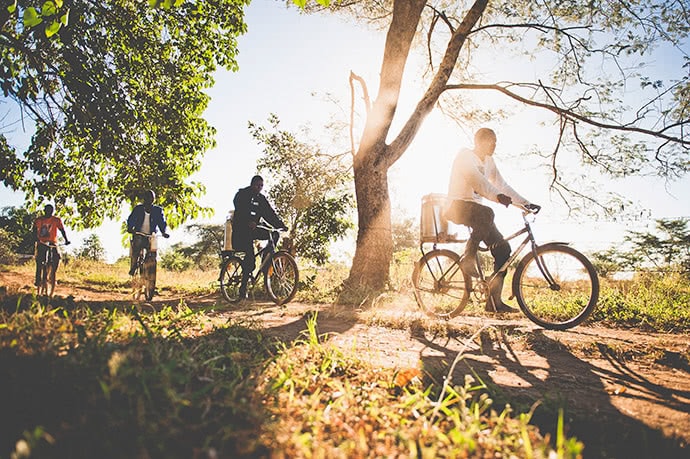
A person can ride a bicycle four times the distance of someone walking. (Photo: WBR)
For girls in rural Zambia, getting to school often involves walking at least an hour each way. Community health workers in Kenya must walk 40 to 60 minutes just to reach their health facilities, and even longer to visit clients in their homes. In Zimbabwe, employees of one company face an average 3.5-hour walk to work.
In these and other rural regions across the world, access to education, health care, and economic opportunity is severely constrained by a lack of reliable, efficient transportation. More than 600 million people walk as their primary mode of transportation in sub-Saharan Africa alone.
Since 2005, World Bicycle Relief (WBR) has shown that the humble bicycle can be an accessible, affordable tool for tackling the barriers of distance and supporting sustainable development.
A vision of bicycles as a tool to improve people’s lives spurred F.K. Day and Leah Missbach Day to found World Bicycle Relief after witnessing the devastation of the 2004 Indian Ocean tsunami. With support from SRAM Corporation, the bicycle component manufacturer that Day co-founded, and from the broader bicycle industry, they distributed more than 24,000 bikes in Sri Lanka. As the country worked to rebuild, the bicycles helped people reconnect to schools, clinics, and the marketplace.
Seeing the difference bicycles made in Sri Lanka, the Days were compelled to explore whether they could have a similar impact in parts of Africa and other developing nations. Since then, WBR has partnered with NGOs, development agencies, governments, and private industry to provide nearly 400,000 bicycles in 19 countries across Africa, South East Asia, and South America.
But they’re not just any bicycle, and certainly not what WBR calls the “bicycle-shaped objects” typically marketed in developing countries, which often lack basic components such as a functional braking system.
Day wanted to “take the product development knowledge and capability that had been utilized at the top of the economic pyramid and apply it to the bottom of the economic pyramid,” says Dave Neiswander, CEO of WBR. “And this had never been done before.”
Drawing on Day’s 25 years of product development expertise, combined with intensive input from end users and test riders in the field, the team designed a bike that would withstand challenging terrain and be repairable with readily available parts, all while still being affordable. They dubbed their creation the Buffalo Bicycle. In 2008, Buffalo Bicycles Ltd. incorporated as a for-profit subsidiary of WBR that sells the $150 bikes to non-governmental organizations, companies and individuals. Proceeds from those social enterprise sales help fund WBR’s philanthropic programs and provide valuable data that helps WBR develop economies of scale and other efficiencies.
WBR didn’t set out with a grand plan to develop this social enterprise model, Neiswander says. It was a response to demand on the ground.
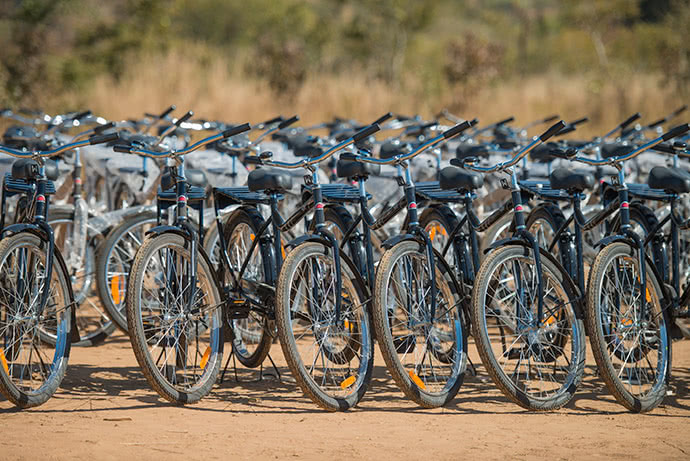
The specially designed frame, carrier and stand of the Buffalo Bicycle provide the stability needed to support big loads and passengers over long distances in remote areas. (Photo: WBR)
As WBR began distributing higher-quality bicycles via its first USAID-funded health program in Zambia, which trained community health workers to combat the AIDS epidemic, “people started knocking on our door wanting those improved bicycles to help their program,” Neiswander says, “and we didn’t have a mechanism to make that work.”
They had to face down a perception that low-income people wouldn’t be able to afford high-quality Buffalo Bicycles, which cost about twice the cheapest ones available. “And what we have found,” Neiswander says, “is that actually, those at the bottom of the economic pyramid have to make their money go further, and so quality is really important to them.” Dairy farmers in Zambia, for example, have been willing to take out small loans to buy the bicycles, with payments subtracted from their earnings over several months.
To date, about half of its bikes have been distributed through such social enterprise sales, and the other half through donors and partnerships.
As this hybrid model has allowed WBR to continue growing, the organization has also maintained a relentless focus on return on impact. Evaluations of its projects demonstrate significant improvements on children’s school performance, health care workers’ outreach to patients, and farmers’ ability to get goods to market.
In Kenya, for example, WBR partnered with PATH to provide 1,100 bicycles to community health volunteers working to ensure rural tuberculosis patients received treatment. With the bicycles, the average number of total health visits per month jumped from 89 to 1,523, and workers were better able to track TB patients who had stopped taking their medication. The volunteers, who were mostly women, also gained ownership of the bicycles through two-year work-to-own contracts, giving them a tool to more efficiently complete their own household tasks.
For its signature Bicycles for Educational Empowerment Program (BEEP), WBR is now undertaking its first randomized control study, the gold standard of evaluation. Since 2009, BEEP has seen positive results from distributing over 140,000 bicycles, 70 percent of them to girls. The new study, led by Innovations for Poverty Action, includes 100 rural schools in Zambia, where long walks to the classroom deter regular attendance and can also pose a safety risk to girls. The final results, due early next year, will examine the effect on girls’ attendance and grade progression, but also on their empowerment and bargaining power in their household.
Those bikes are the most valuable asset in the girls’ households, explains Ruth-Anne Renaud, WBR’s director of global marketing, who met some of the girls on a recent visit to Zambia. “And that has been entrusted to a 12- to 15-year-old girl,” she says. “With the support of the local Bicycle Supervisory Committee, she is able to negotiate with her father or male figures in the household to ensure that she is the primary user of the bicycle, and that she is getting to school on a regular basis.”
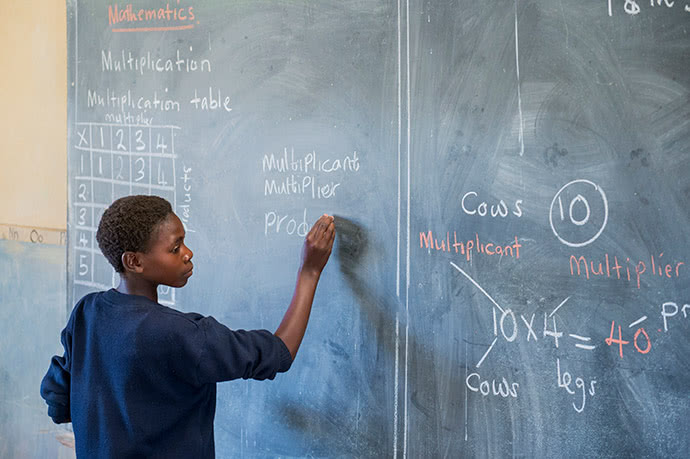
Keeping girls like Tamara in school has been shown to have a multiplier effect that can help break the cycle of poverty. (Photo: WBR)
The girls, Renaud says, are also able to convince their parents that they can complete some of their chores in the morning, peddle to school on time, and then ride home quickly at the end of the day to finish their chores. “So she’s getting a bit more independence,” Renaud says, “she’s getting a bit more autonomy, she’s getting to have a bit more control over the management of her day and her responsibilities.”
In this way, the mobility afforded by Buffalo Bicycles contributes to a number of the United Nation’s 17 sustainable development goals, including quality education, gender equality, good health and well-being, and zero hunger. In recognition of the bicycle’s role in achieving broader development aims, the United Nations declared the first World Bicycle Day on June 3. Neiswander spoke at the inaugural event in New York.
Reflecting on the future of global development, Neiswander sees opportunities in expanded partnerships with USAID and large foundations, as well as with businesses that are interested in impact- and data-driven models. Corporate leaders, he says, are increasingly tuned in to the ways social responsibility resonates with their mission, their employees, and sometimes even with their business strategies.
Neiswander also notes that protracted disasters, such as the flooding in Bangladesh, present a particular challenge. “They are open-ended investments, and how do you manage that?” he asks. The appropriate response, he suggests, is creating a system of development where each country is on a journey to become self-reliant.
Jeff Bezos, in asking for suggestions on his philanthropic giving via a 2017 tweet, said he was seeking to help people “at the intersection of urgent need and lasting impact.” When it comes to mobility in developing regions of the world, Neiswander says, World Bicycle Relief’s unique model of philanthropy, combined with compelling social enterprise, is at that intersection.
Back to Top
Changemaker
Heidi Peterson, Executive Director, Mobility Outreach International
By Allegra Abramo
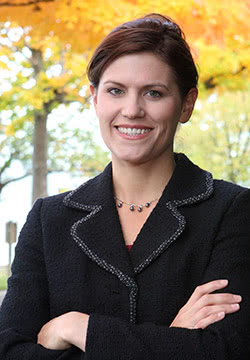
Heidi Peterson, Mobility Outreach International’s executive director. Photo by Dani Weiss.
When Heidi Peterson was working in India, she met a woman who had experienced two miscarriages and, as a result, had been ostracized by others in her village who believed she was cursed.
Then the woman became a community health advocate through a joint CARE/PATH program supported by the Bill and Melinda Gates Foundation to distribute safe birthing kits. She told Peterson that her experiences had allowed her to connect with other village women and develop new friendships. “‘I can help women feel empowered,’” she told Peterson. “‘It’s allowed me to feel as if my life makes a difference, and I’m no longer excluded from our village.’”
Seeing that kind of resilience and ability to overcome adversity is what keeps Peterson going.
“A lot of people, when they think about global poverty, they feel hopeless, as though the challenges are so insurmountable, and that poverty is inevitable and it cannot be changed,” she says. “When you see examples of small changes that allow people to become independent and in aggregate improve the community for the long term that inspires me, that’s what gets me out of bed in the morning.”
Today, Peterson is the executive director of Mobility Outreach International, which restores mobility to children and adults affected by limb loss and deformity in under-resourced areas around the globe. Founded in 1989 by a Seattle orthopedist who provided artificial limbs and braces to Vietnamese land mine victims, MOi now also provides non-surgical clubfoot treatment, orthopedic surgery, and training to improve the local availability and repair of prosthetics and orthotics. MOi has served over 30,000 people in Vietnam, Bangladesh, Haiti, Sierra Leone, and recently launched programs in Senegal.
Peterson joined MOi just over a year ago after more than 15 years as a development professional with organizations that include CARE USA and India, Room to Read, PATH and JDRF.
Peterson’s passion for helping others grew out of her early-life experiences. Raised by a single mother in Idaho from the age of 8, she came to understand the important role others had played in her upbringing. “I realized it was really a community of people that helped my family succeed and helped me access education,” she says.
Growing up in a “broken family” in a conservative community, Peterson also became attuned to social stigma. “I was very sensitive to who was struggling in my society and how I could help make a difference to people around me.”
A year in Ecuador during college helped solidify her determination to focus her life’s work in philanthropy and social justice. She recalls witnessing a teenager who was missing both legs rushing between cars on a skateboard he propelled with his bare knuckles, begging for spare change. That and other experiences in Ecuador opened her eyes to how a lack of resources affects people’s long-term prospects for self-sufficiency.
At first Peterson thought that perhaps she could one day earn enough money to be a philanthropist. “And I realized that, even if I were to work in a field that would just allow me to contribute financially, my talents were better placed getting directly involved in the work.”
One of the central passions of Peterson’s work has been helping marginalized girls and women. “The pathway to success is much harder for them, and they are often the ones that are left behind,” she says.
While mobility challenges affect everyone, they can have additional indirect effects on women, Peterson explains. In places where MOi works, women typically have the responsibility to care for a child, spouse or other family member with impaired mobility. “So when you have one person out of work due to mobility issues, you really have two people that can’t produce at same level in the economy,” Peterson says. Helping the people in a woman’s household be as independent as possible “allows her to rise to her greatest potential.”
But Peterson aims to do more than help one person at a time. Ensuring that people will have better access to mobility devices and treatment across the local health system after MOi’s work on the ground has ended undergirds her work.
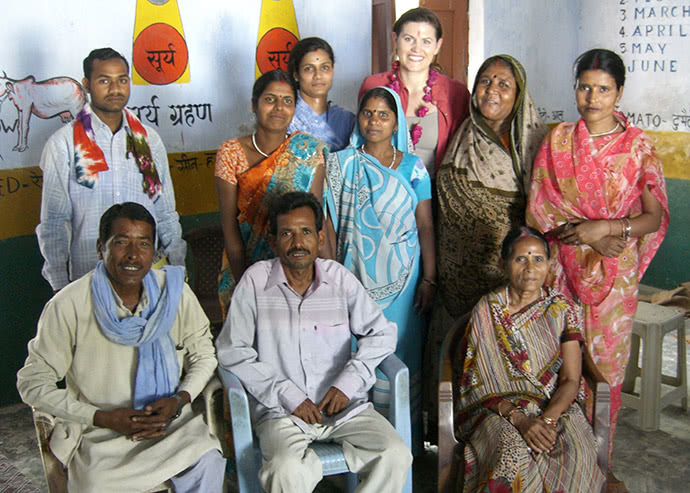
Heidi Peterson at a site visit near Lucknow, India for a CARE/PATH SureStart Project in 2010. Photo provided by Peterson.
Sometimes that means diving into the minutiae of things like the supply of certain plastics. In Senegal, MOi has worked to increase the availability of polypropylene, which is used in making prosthetics. Polypropylene “sounds really boring,” Peterson says, but it’s essential for fashioning comfortable sockets where the residual limb rests. Without it, prosthetic legs won’t fit well and will just end up in the closet, with people reverting to using crutches, she says. MOi also trains people to make and repair prosthetics and orthotics and helps establish small repair centers that entrepreneurs eventually own and operate as their own private businesses.
“It’s improving the supply chain and local industry so things can be made at the local level with reduced reliance on global imports,” Peterson say, “as opposed to hoping and praying on foreign philanthropy to solve the problem. We have to invest in sustainability.”
Identifying and tackling challenges on the fly is part of what Peterson loves about international development work, and it also inspires her love of outdoor adventures, including cycling, sailing, and hiking. An avid sailboat racer, Peterson was the only female on a 10-person crew racing on the San Francisco Bay. In the often wet and cold position of bowman, Peterson was responsible for making all head sail changes. “You have to be able to make difficult decisions very quickly and precisely in knowing your team’s collective ability to meet the challenge,” she says. “To be able to exercise that role with proficiency was a real personal achievement.”
Summers spent helping out on the Nebraska farm of her Swedish-Danish grandfather helped instill a grit she has carried into her career. Life is tough, Peterson learned, and complaining isn’t an option.
“I have always believed in the underdog,” Peterson says, “and I for some reason am inspired to take on large challenges and solve them. For me that’s like mental Olympics.”
One big challenge Peterson sees facing international development nonprofits, particularly smaller ones, is the fragmentation of the funding market. Large foundations tend to want to streamline the number of nonprofits that receive their support, yet the nonprofit landscape continues to become more crowded. Additionally, people receive their news and information across many channels, which makes packaging your messages and getting them to the right people more complex and costly, she explains. But that also offers an opportunity, she adds, because you can tailor your message and advertising to the people who care the most about your mission and focus your efforts to develop relationships with those donors.
The recent tax law changes could also pose a new challenge to fundraising, Peterson says. The law nearly doubled the size of estates exemption from taxes, to $11 million, which means there is less incentive to give an end-of-life gift, she worries.
Peterson believes smart partnerships between nonprofits and social impact ventures will be the key to survival and growth. Both small and large NGOs can accomplish more when they co-deliver programs and tap into a greater array of talent. She gives the example of CARE USA, which increased its operations from 70 to 90 countries in the span of about seven years, while its operating budget remained approximately the same. They were able to do that largely through partnerships, she says.
“That’s a real shining light in philanthropy and nonprofit work,” Peterson says. “Rather than duplicating efforts and stepping on each other’s toes, there is a sense of greater collaboration.” The organizations that seek out and embrace that, she says, will be the ones to survive.
Among international non-profits, Mobility Outreach International is unquestionably a survivor. This month marks the organization’s 30-year anniversary.
Back to Top
Welcome New Members
Please welcome our newest Global Washington members. Take a moment to familiarize yourself with their work and consider opportunities for support and collaboration!
Kids in Need of Defense (KIND)
KIND protects unaccompanied immigrant and refugee children by providing pro bono legal representation in immigration court; family reunification and sexual and gender-based services in Central America that respond to the root causes of child migration; and conducting advocacy in the U.S. and the region for laws, policies, and practices to protect children who migrate alone. supportkind.org
The Spring Development Initiative (TSDI)
The Spring Development Initiative (TSDI) is a Redmond-based global non-profit that supports local leaders for positive social change. TSDI is committed to empowering young leaders who are working towards increased citizen participation in governance, as well as improved health, economic and educational attainment in their communities. The non-profit provides training and development, mentoring and collaboration, and access to scholarships and investments. https://www.sid-initiative.org/
Back to Top
Member Events
July 14: Sahar // Sahar Education presents: A Night at the Museum
July 16: Clark Nuber PS // The Basics for Not-For-Profit Organizations
July 20: Upaya Social Ventures // Upaya 2018 Breakfast Briefing at GlobalWA
Back to Top
Career Center
Highlighted Positions
Senior Associate, Social Performance Measurement Upaya Social Ventures
Administrative Assistant Mobility Outreach International
Development Assistant Landesa
Children’s Coordinating Attorney Kids in Need of Defense (KIND)
Check out the GlobalWA Job Board for the latest openings.
Back to Top
GlobalWA Events
July 12: Networking Happy Hour with Friends of GlobalWA, WGHA, and World Affairs Council
December 6: GlobalWA 10th Annual Conference
Back to Top
Professional Development
Global Leadership Forum: Gain practical strategies to advance your organization. Learn alongside a trusted community of leaders of global NGOs and nonprofits, foundations and related organizations.
Accelerating Social Transformation (UW School of Business): Increase your social impact and enhance your professional career. The city of Seattle serves as the laboratory for this unique and immersive three-and-a-half day course, curated by Akhtar Badshah, Global Washington’s president and board chair.
Back to Top
Global Development Practitioners Brace for a Bumpy Ride in International Travel
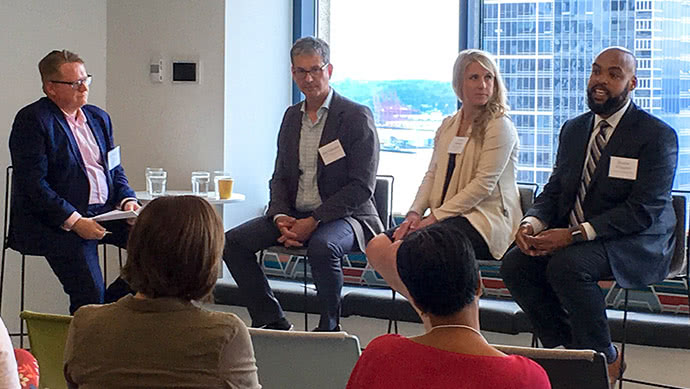
Panelists from L to R: Eric Klunder, Lynden International; Joe Gleason, AHT Insurance; Cassie Walker, International SOS; and Dustin O’Quinn, Lane Powell PC. (Photo credit: Cara Vallier for Global Washington).
On Wednesday, June 27, Global Washington hosted a panel discussion about global travel risk, together with its member Key Travel, which provides travel and support services to non-profits globally.
The event came just a day after the Supreme Court of the United States voted to uphold the travel ban against Iran, Libya, Somalia, Syria, Yemen, North Korea and Venezuela.
Moderated by Eric Klunder, Lynden International Senior Account Executive, the panel of speakers included Joe Gleason, AHT Insurance Director of Risk Management; Cassie Walker, International SOS Business Development Manager, and Dustin O’Quinn, Lane Powell PC Shareholder and Immigration Team Chair.
Continue Reading
Global Washington Members Respond to Evolving Trump Administration Policy on Family Separation at the U.S. / Mexico Border
In April, Attorney General Jeff Sessions announced a “zero tolerance” policy for anyone crossing the US-Mexico border between ports of entry without proper documentation, including people seeking asylum, and said federal prosecutors would begin criminally prosecuting them.
As a result of this policy, the Department of Homeland Security reported that 2,342 children were separated from their parents between May 5 and June 9, an average of 65 children a day. Separated children were then considered “unaccompanied” minors, falling under the care of the Office of Refugee Resettlement, a part of the Department of Health and Human Services (HHS).
This policy continued until an executive order was signed on June 20, replacing family separation with family detention. According to The Department of Homeland Security, as of June 20 more than 2,000 separated minors are still housed in HHS-funded facilities.
Global Washington members are responding to this evolving situation. Statements by member organizations are listed chronologically.
Kids In Need of Defense (KIND)
In a statement released June 21, KIND President, Wendy Young, said:
“President Trump’s Executive Order would allow the United States to hold immigrant children in jail-like conditions for an indefinite period of time. It leaves the “zero tolerance” policy intact, resulting in parents still being criminally prosecuted at the border, and could eliminate all standards governing the Department of Homeland Security holding of immigrant children in custody. It is no solution – it simply trades one abhorrent policy for another.
“It also denies access to fair hearings as it fast tracks immigration hearings, even ahead of those who have committed crimes in the U.S.
“It ignores a real solution – to keep families together by placing them into community-based community alternatives that have proven to be effective – nearly 100 percent of the families in these alternative programs have appeared for their immigration hearings. These programs are also far less expensive – dollars per day versus hundreds of dollars a day.
“It also for the first time introduces a military role on a formal basis into immigration detention, further militarizing our immigration system.
“Finally, the Executive Order does nothing to address the root causes of these families’ flight – the pervasive narco-trafficker and gang-violence that threatens the families, and particularly children, daily. The Trump Administration eliminated the Central American Minors program, the only way Central American children in danger could apply for protection in the U.S. from their home country.
“We cannot be a nation that puts immigrant children in jail and throws away the key. Saying that the Executive Order is an end to family separation is a cynical misrepresentation that has nothing to do with the well-being of families and is another act of abject cruelty towards immigrant children.”
Northwest Immigrant Rights Project (NWIRP)
On June 21, NWIRP released a statement on the executive order, “Affording Congress an Opportunity to Address Family Separation”:
NWIRP does not view the executive order issued yesterday as a positive development because it swaps one form of trauma (family separation) for another (indefinite family detention). And indefinite family detention has already been found to be unlawful in addition to being inhumane. The executive order also has not changed the reality on the ground that thousands of children are separated from their parents, including the over 45 parents we know are being detained at the Federal Detention Center in SeaTac and the Northwest Detention Center in Tacoma, ICE has not provided any information on how they intend to reunify families that have already been separated and we will reject any reunification that would mean that parents and children will continue to be detained.
Jorge Barón, NWIRP Executive Director also said at a news conference June 21 that his organization will file a lawsuit “on behalf of the parents” separated from their children who are now being held in Washington state.
In a statement about the class-action suit, NWIRP said:
The government has no legitimate purpose to separate these families while they go through civil immigration proceedings. Our suit seeks to ensure these parents and their children are reunited as soon as possible, and allowed to continue their asylum claims together.
International Rescue Committee (IRC)
On June 20, IRC Vice President, U.S. Programs, Said Hans Van de Weerd, responded to the executive order on family separation:
“The Executive Order signed today is not a solution for families seeking much-needed asylum and does nothing to reunite the thousands of children who have already been separated from their parents at the border. The administration is replacing one form of cruelty with another.
“The executive order continues the disturbing criminalization of asylum, in a break with the very treaty obligations the United States helped craft after WWII. It proposes detaining children and their families for the length of their proceedings—which can often take many months or over a year—despite obligations to release children promptly.
“IRC continues to urge the Administration and Congress to reverse course on numerous, troubling erosions to long-standing, bi-partisan protections. Central American children, and their families, have suffered enough.”
World Vision U.S.
On June 20, World Vision U.S. President Rich Stearns tweeted about the executive order:
“Encouraged to see Congress & the President working on a compassionate response to keep families & children together. This should never have happened. Parents help kids make sense of difficult & scary events. Work needs to continue to reunite families & support impacted children.”
On June 15, World Vision posted the following statement about family separations at the border:
As a child-focused Christian organization, World Vision believes that God intended that children be cared for and protected in a family environment, and urges the U.S. Government to find family centered and child-focused solutions to immigration detention.
While the U.S. needs to address real concerns about our immigration system, children and families should not suffer in the process. The single most important relationship for all children, especially those at risk of violence or in high stress situations, is that of a parent. Separating children from their parents can have a devastating long-term effect on children’s mental, physical, and emotional development.
As a Christian organization, we believe God calls us to be His co-workers in defending the vulnerable, the marginalized, and the powerless. Jesus tells His disciples to “bring the little children unto me.”
We call for a compassionate response for all the children and families involved.
Mercy Corps
Though it does not often comment on U.S. domestic issues, in a statement on June 19, Mercy Corps CEO Neal Keny-Guyer said:
“We urge the Trump administration to end this shameful practice immediately. At a time when there are more people displaced from their homes than at any point since WWII, it is imperative that governments commit to basic principles of decency in how vulnerable people and families who are fleeing violence are treated. Foremost among those principles is a commitment to protecting children.”
Read the entire statement: https://www.mercycorps.org/press-room/releases/mercy-corps-calls-immediate-end-separation-children-and-families-us-border
Microsoft
Microsoft CEO Satya Nadella, in an email to all Microsoft employees and posted on his LinkedIn page on June 19, noted that he felt the issue keenly, as both “a parent and an immigrant.”
“This new policy implemented on the border is simply cruel and abusive, and we are standing for change.”
Read the entire post: https://www.linkedin.com/pulse/my-views-us-immigration-policy-satya-nadella/
In a blog post dated June 19, Microsoft President Brad Smith detailed the company’s position on immigration policy currently before Congress. He also highlighted the company’s 2008 co-founding of Kids in Need of Defense (KIND).
University of Washington
As a trained child clinical psychologist, UW President Ana Mari Cauce described in a blog post on June 18 the impact of separating children from their parents and why this practice must end:
“The damage for children is especially acute and can interfere not only with mental health and emotional development, but with brain development itself. The fact that American tax dollars are being used to knowingly inflict lifelong trauma on children is a stain on our national character.”
Read the entire post: http://www.washington.edu/president/2018/06/18/family-separation-cruel/
WaterAid Receives $4.2 Million Grant from PepsiCo Foundation
On June 18, 2018, PepsiCo Foundation announced a $4.2 million grant to WaterAid, a leading international water and sanitation non-governmental organization, to provide clean water access to communities in southern India facing extreme water shortages, specifically in Palakkad (Kerala), Nelamangala (Karnakata), and Sri City (Andhra Pradesh).
“Strong public-private partnerships drive scalable and lasting impact, and we are proud to work with PepsiCo to bring clean water to hundreds of thousands of people in need,” said Sarina Prabasi, U.S. CEO of WaterAid. “To improve access to clean water, it’s essential that corporations step up and invest in collaborative action, just as PepsiCo is doing as part of its leading Performance with Purpose agenda.”
Read the press release: http://www.pepsico.com/live/pressrelease/pepsico-expands-safe-water-access-to-nearly-16-million-people-achieving-more-tha0618201
Outright Reacts to the United States Withdrawal from the UN Human Rights Council
Today, at a press conference held at the State Department, Secretary of State Mike Pompeo and U.S. Ambassador to the United Nations (UN) Nikki Haley announced the withdrawal of the United States from the United Nations Human Rights Council. The withdrawal marks the latest announcement in a concerning trend of US divestment from United Nations institutions and multilateral agreements including the 2017 defunding of the UN Population Fund and the withdrawal from the Paris Agreement on climate change mitigation.
Read more here: https://www.outrightinternational.org/content/outright-reacts-united-states-withdrawal-un-human-rights-council
June 2018 Newsletter
Welcome to the June 2018 issue of the Global Washington newsletter.
IN THIS ISSUE
Letter from our Executive Director
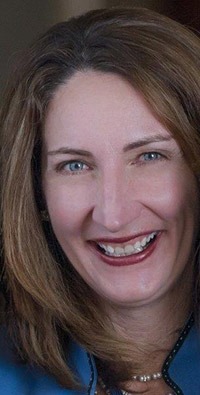
The first goal listed under the Sustainable Development Goals (SDGs), “No Poverty” aims to “End poverty in all its forms everywhere.” In countries around the world where a significant percentage of the population still lives in extreme poverty, surviving on less than $1.25 a day, improved economic opportunities are desperately needed. At the same time, we must ensure that the rights of people and the natural systems on which their health and livelihoods depend, are also protected.
To that end, companies sourcing raw material from developing countries are increasingly adopting what some call a “shared value” framework, one in which social good and core business objectives are intertwined. Often this results in strong for-profit and non-profit partnerships with a common goal of improving lives and catalyzing economic growth within low-income countries.
I’m proud to say that several Global Washington non-profit and for-profit members have embraced shared values and built ethical value chains that advance the goal of eliminating extreme poverty. This issue of our newsletter spotlights some of our members that have been working in partnership with corporations to promote more sustainable sourcing. I invite you to join us at our event on June 21 with speakers from PepsiCo, The Forest Trust (TFT), Mercy Corps, and Resonance to find out more about this topic and join the conversation.
Besides curating these important conversations, another part of our work includes increasing philanthropy for global issues. Along those lines, I would like to congratulate all 22 GlobalWA members who participated in the University of Washington class on global philanthropy, which was a partnership among UW, GlobalWA and The Philanthropy lab. Five GlobalWA members were selected by the students, after an extensive vetting process, to receive grants ranging from $5,000 to $25,000. It was a powerful experience for the students and a meaningful opportunity for our members to connect with a younger audience.
Lastly, my heart goes out to more than 1.7 million people in Guatemala who were affected by the Fuego Volcano eruption this past week. We have a list on our website of our non-profit members that are responding with emergency relief and recovery teams, if you would like to learn more and donate to support their efforts.
All my best,

Kristen Dailey
Executive Director
Back to Top
Issue Brief
The Future of Sustainable Sourcing

To move beyond subsistence-level farming, agricultural communities within developing countries often seek out export markets as a means to increase revenue and fuel local economies. Notable success stories have shown what’s possible. In Ethiopia, for example, chickpea production increased dramatically in just four years, with earnings from export increasing from $1 million in 2004 to $26 million in 2008.
In the best of circumstances, when U.S. or European companies purchase their raw materials from developing countries, the people living in those countries can see enormous benefits – increasing incomes, improved local services, greater food security, and more. Under other circumstances, corporate sourcing can have catastrophic impacts on local communities and ecosystems.
Many corporations choose to work in partnership with non-governmental organizations that seek to improve working and living conditions for people who are impacted by corporate sourcing. Mercy Corps, for example, has worked for over a decade with its partner Tazo (now Starbucks) in the private tea estates of Assam and Darjeeling, and the families living there who have been cultivating tea for generations. With the support of Starbucks, Mercy Corps has been able to provide the workers and their families with education, vocational training, and other important services.
Perhaps one of the most notorious commodities sourced today is palm oil. To assist the palm oil industry in adopting practices that “help avoid deforestation, peat development, and exploitation of workers and communities,” The Forest Trust (TFT), has developed an online platform. Though TFT notes the tool isn’t sufficient on its own to promote supply chain transparency, what it can do is support verification efforts on the ground, including businesses’ own efforts to verify their supply chain adherence to best practices.
Another organization that helps companies to bridge the gap with local communities is Resonance. The company helps businesses build strong local workforces and reliable local suppliers in frontier markets.
While export markets alone will not increase livelihoods and ensure environmental sustainability, companies and non-profits that adopt a shared values approach of protecting people and ecosystems, provide inspiring models of sustainable sourcing that can lead to a better future for all.
* * *
The following Global Washington members are working to improve sustainable sourcing practices around the world:
Agros recognizes the importance of agriculture as a profitable endeavor that helps families overcome poverty. Agros villages apply modern agriculture and climate-smart practices that increase yields, protect the environment and allow farmers to produce 2.6 times more harvests per year than the average smallholder farmer in Latin America. The non-profit does this in alliance with private sector allies, such as ECOM and Walmart, which partner in bringing technology and certification standards to Agros communities in Central America. agros.org
Fair Trade USA is a nonprofit organization and the leading certifier of Fair Trade products in North America. Their rigorous standards around the production of over 30 product categories – from coffee, cocoa, and sugar to coconut, seafood, and apparel/home goods – help protect fundamental human rights, ensure safe, healthy working conditions, protect the environment, and deliver additional economic resources to producing communities. In addition to these requirements, Fair Trade also ensures that producers earn additional Community Development Funds to address their pressing needs. Many groups vote to spend this money on projects that benefit women, like cervical cancer screenings, scholarships, child care centers and microloans for income diversification. fairtradecertified.org
The Forest Trust (TFT) is a global non-profit that helps companies and communities deliver environmentally and socially responsible products. TFT is active in the key nodes of the supply chain, and helps turn values into clear policies and guidelines. TFT’s supply chain mapping and traceability work helps companies to trace products back to their source and identifies key social and environmental issues. TFT staff coach and mediate to help solve complex problems on the ground, working with suppliers, NGOs and regulators. They also help facilitate monitoring by international and local NGOs, not just as a means of independent verification but as a source of constant improvement and learning. tft-earth.org
The Initiative for Global Development (IGD) is a Washington, DC-based nonprofit that engages and harnesses the power of the private sector to advance sustainable development and inclusive growth in Africa through business investment. IGD brings together CEOs and senior executives from leading African and global companies through its Frontier Leader Network to catalyze greater business investment and impact on the continent. IGD envisions an Africa with thriving, impactful businesses that create inclusive growth, and where business leaders are a positive force in shaping Africa’s future. igdleaders.org
Largesse is a mission-driven business that specializes in curating beautiful handmade, eco-conscious and/or fairly-traded corporate gifts. It provides corporate gift buyers with unique solutions for executive gifts, incentive rewards and promotional products that align with and reinforce their brand values. Largesse creates sustainable economic opportunities for marginalized and talented artisans across the world by giving them equal access to the marketplace of corporate buyers. In this way, it promotes and preserves centuries-old skills, artisan partners earn a fair living wage while working in safe conditions, and products are gifted that are kind to the planet and its people throughout their lifecycle. largessecompany.com
Mercy Corps works in partnership across the private, public and civil society sectors, promoting accountability, inclusive participation and mechanisms for peaceful change. To meet companies’ increasing interest in leveraging their unique skills and assets to make a difference and give back, Mercy Corps has developed a partnership menu to enable corporate partners to tailor their engagement in a way that best meets both Mercy Corps’ objectives and the objectives of the company. mercycorps.org/corporate-partners
Oikocredit US promotes and facilitates the global work of Oikocredit International, a cooperative social investor providing funding to the microfinance sector, fair trade organizations, cooperatives, and small to medium enterprises. Oikocredit has identified agriculture as a priority sector, investing in 180 agricultural partners in 35 countries. Oikocredit’s dedicated agriculture unit invests across the value chain of many global commodities to strengthen smallholder farmers’ and other partners’ ability to participate in competitive local, regional, and international markets. In addition to loans, Oikocredit supports partners with capacity building grants, technical assistance, and education. Oikocredit US
Resonance helps its clients unlock opportunity in frontier markets by designing action-based strategies, forging strategic partnerships, and executing across sector boundaries. Since 2005, Resonance has built over 200 partnerships and delivered solutions that enable businesses to achieve their growth objectives, NGOs to fulfill their missions, and development agencies to reach billions of individuals born into poverty. From technology distribution in remote regions, to the development of insurance products for smallholder farmers, Resonance is committed to driving value for businesses that in turn addresses the challenges of global poverty. resonanceglobal.com
World Vision is a global development organization, solving the puzzle of poverty in developing nations and fragile states. To solve this complex puzzle, the organization takes a big-picture approach and employs a comprehensive, sustainable, and holistic model to address a community’s unique needs. World Vision engages corporations through a suite of business solutions for needs ranging from ensuring sustainable supply chains; new market and new product development; providing reverse logistics product donations utilizing a best-in-class international supply chain and logistics platform; and internal and external customer engagements. The integrated development model ensures that World Vision’s corporate partners’ investments will continue to transform lives for generations by empowering families to improve their livelihoods while equipping entire communities to be self-sustaining. worldvision.org
Back to Top
Organization Profile
Mercy Corps
By Joanne Lu
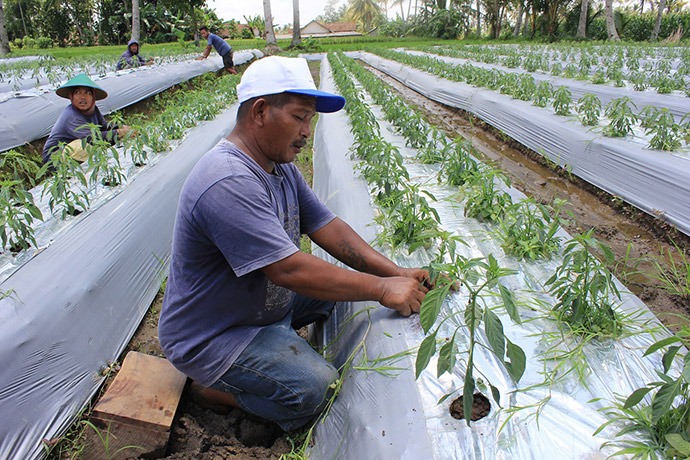
In 2015 John Deere Foundation committed funds to support Mercy Corps’ work to increase household incomes of smallholder rice farmers in Indonesia. Photo Credit: Mercy Corps.
Over its nearly four-decade history, Mercy Corps has continuously expanded through private, public and civil society partnerships to “help people recover from disaster, build better lives and transform their communities for good.”
What started in 1979 as Save the Refugee Fund – a task force responding to the infamous Cambodian “Killing Fields” refugee crisis – steadily grew into the humanitarian aid giant that Mercy Corps is today. The organization now works in almost 40 countries, with programs spanning more than a dozen humanitarian and development sectors, and has even been nominated for a Nobel Peace Prize.
But from its founding, partnerships have been “central,” to how Mercy Corps works, according to Allison Morris, interim vice-president for Corporate and Foundation Partnerships.
“Our partnerships help define how we do things differently,” Morris said. “The world is facing some of the greatest humanitarian challenges of our time, and at Mercy Corps, we know that no single organization can tackle them alone. So we work across the public and private sectors to bring our unique expertise, innovations and solutions together to spark, scale and sustain change for communities in need around the world.”
Mercy Corps has a whole “menu” of ways corporations and foundations can partner with them – whether through cause marketing, employee engagement, grantmaking impact, emergency response or “Partners in Possible,” their annual giving society.
“In our experience, companies today are looking to develop deep, meaningful partnerships and leverage many of their unique skills and assets to make a difference and give back, including financial resources, employee talent, product, customer engagement and more,” Morris said. “Mercy Corps is looking for that, too.”
One area in which partnerships have played a key role in Mercy Corps’ work is in sustainable sourcing and ethical supply chains.
For example, Mercy Corps has been partnering with Starbucks for 13 years in tea and cardamom-producing communities. These are communities in which generations of families often live in appalling conditions and work for meager wages.
But according to a 2012 news article, it was only because of Tazo Tea (which Starbucks owned from 1999 to 2017) that Mercy Corps was granted access to the tea estates in Assam and Darjeeling in the first place. The owners of the Indian estates prohibited even the government from inspecting conditions, Rosy Choudhury, Mercy Corps’ Project Director of the Community Health and Advancement Initiative (CHAI) at the time, told Puget Sound Business Journal.
But because Tazo was a corporate customer, the estate owners were willing to work with Mercy Corps and Starbucks. For more than a decade now, they have been providing families on the estates vocational training for youth, access to water and health services, economic opportunities and alternative livelihoods.
As the article reported, Tazo wasn’t even a large tea buyer at the time, but in 2002 it became the first retailer to launch a corporate social responsibility program for tea-estate communities. Since then, many others – including Twinings and Steven Smith Teamaker – have followed suit.
Another way Mercy Corps is impacting supply chains is through its Social Venture Fund, which makes equity investments in for-profit businesses. One of those businesses is Vega Coffee, which sources beans from low-income farmers in Colombia. But instead of feeding into an excruciatingly long supply chain, in which farmers rarely see enough profit to lift themselves out of poverty, Vega “pushes value-add[ing] coffee processing (cupping, selecting, roasting, etc.) down to the farm level,” according to Morris. She says that this has increased farmers’ incomes by four times. Vega then markets, sells and ships the roasted coffee from farms directly to U.S. consumers’ front doors within five days of roasting.
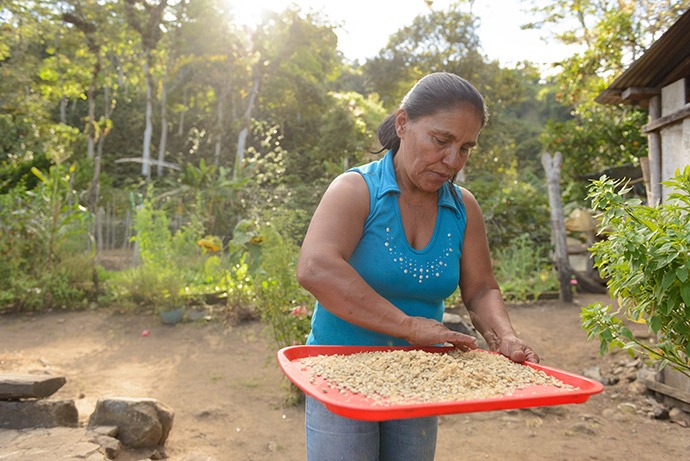
Maria Flor works with Mercy Corps and its partner CAFISUR, a coffee farming cooperative in Colombia, to improve environmental practices and production on her farm. She manages five hectares of coffee, with 22,000 plants. Funding from Starbucks supports training on sustainable land and water management for coffee farms like hers. Photo Credit: Miguel Samper for Mercy Corps.
According to Morris, an increasing number of companies have also been asking Mercy Corps to help them work with smallholder farmers to implement more sustainable farming practices that build up communities’ resilience to climate change. These practices include safe water, soil, crop and livestock management.
In addition, as the average age of farmers globally verges on 60, Mercy Corps is helping agriculture co-ops get more young people involved in managing and running local farms.
“Communities are realizing that, in order for their agricultural communities to be vibrant, forward-thinking and globally competitive, having youth stay in such communities and be involved in agricultural value chains, at all levels, is key to their success,” Morris said.
Looking ahead at the organization’s next decade, Morris says she hopes Mercy Corps will continue to take a market-driven approach as it finds new ways to “facilitate connections between the private sector and the needs of communities around the world.” Thankfully, it appears that these partnerships are being urged on by consumers, executives and even employees, who are voicing how important corporate social responsibility is to them.
“Companies understand the importance that their buying decisions have on local markets,” Morris said, “and that by purchasing products that have been created safely and sustainably, they can have a positive, long term impact on those local markets and communities.”
She says that momentum for sustainable sourcing and business practices in general has been building for a while.
“These changes are needed if we are going to create a world where people, planet and profits are given equal importance,” she said.
Back to Top
Changemaker
Robin Barr, Global Director of TFT
By: Joanne Lu
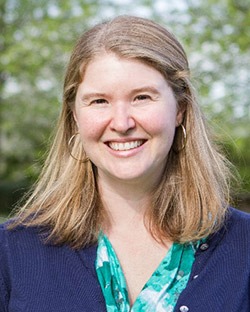 Social and environmental issues have never been separate for Robin Barr. As the global director of TFT (The Forest Trust), she’s now helping companies gain that perspective, as well, so they can use their leverage in supply chains to address those issues.
Social and environmental issues have never been separate for Robin Barr. As the global director of TFT (The Forest Trust), she’s now helping companies gain that perspective, as well, so they can use their leverage in supply chains to address those issues.
Growing up in Eastern Washington, near the Colville Indian Reservation, Barr says her worldview was largely influenced from a young age by her best friend and her best friend’s father – a Native American storyteller.
“I grew up with an understanding that indigenous culture is very much tied to place, land and ecology,” Barr said. “[That] framed my thinking so that the environment and social issues are always one and the same.”
Her experiences over the years have only confirmed the notion that poverty is inextricably linked to the environment. Even at 15 years old, while volunteering with a traveling women’s health group in India, Barr found that the women they worked with mostly wanted to talk about deforestation, which was forcing them to walk further and work longer for less firewood.
After her initial experience abroad, Barr knew she wanted to do international work, but didn’t have an exact field in mind. She enrolled at Washington State University and took classes that interested her, until she graduated four years later with a degree in environmental science and regional planning.
Immediately, she took the first overseas opportunity that opened up for her and moved to Meru, Kenya, where she taught environmental science at a Methodist university. But Barr found herself captivated in her spare time by the elephant-farmer conflicts that were escalating in the area, as the elephants’ habitat and migration paths were being deforested. As a result, elephants were raiding nearby farms for food.
Additionally, she began to develop an interest in agroforestry systems and learning how smallholder farmers’ access to international markets help them afford things like school fees, cars, and land, but can also have a negative impact on them and on the environment.
“I really got interested in these issues by, first of all, caring about the poor and the disenfranchised and realizing that what they care about is often the environment,” Barr said.
After two years in Kenya, her research led her back to the U.S. for a master’s degree in environmental management from the Yale School of Forestry. That’s where she first learned about TFT.
During a class on sustainable forestry and forest certification, TFT Founder Scott Poynton shared with Barr and her classmates how TFT was working with European furniture manufacturers to convince forest managers in Asia and Africa to develop more sustainable practices. The organization seemed to be grappling with the same issues she saw as relevant, based on her time and experience in Kenya, India and even Washington state. So, when the opportunity came up in 2004 for her to work for TFT in Indonesia – even though it wasn’t what she had anticipated doing after spending two years in East Africa learning Swahili – she took it.
In Indonesia, Barr worked with communities across the island of Sulawesi that were growing their own teak, a very popular wood for furniture. At the time, civil society was putting a lot of pressure on companies not to purchase teak from a company owned by the Indonesian government – the largest commercial grower in the world – because of land conflicts that were sometimes resulting in violence.
With market demand in place for ethically-sourced teak, TFT wanted to connect the communities on Sulawesi to factories that supplied to the European furniture companies that worked with TFT. Barr helped these communities negotiate contracts, and get the necessary permits to harvest their teak and sell it to factories thousands of miles away. She also helped them develop plans to ensure sustainable harvesting and income over time and get eco-certified by the Forest Stewardship Council (FSC). According to Barr, these actions increased the farmers’ proceeds by about 70 percent.
But not only did Barr help the farmers on Sulawesi sell the teak on their own land. For years, the community had wanted the rights to a plantation in the area that the Government owned, but had forgotten about. They even formed a co-op for this appeal without much success. After three years of TFT’s involvement, the Government handed over the plantation to the co-op.
The teak program in Indonesia was such a success that TFT launched similar tropical hardwood programs around the world in Java, Laos, and northern Vietnam. Barr’s success there also eventually lead to promotions as the U.S. country head, the Americas director and, currently, global director. TFT’s work now includes working on palm oil, pulp & paper, biomass, cocoa, sugar, and many other global commodity supply chains linking people and products across six continents.
“I’m not in the field as much as I used to be, obviously, but I get to be a coach and a mentor to a whole bunch of people all over the place who are in the field on a regular basis,” Barr said. “That’s really gratifying, because a lot of times, I will be the only person that person has talked to all month outside of their local environment about really complicated and stressful social issues that they’re trying to develop solutions to.”
Indeed, the issues TFT tackles are massive and complicated. TFT works with brand giants like Nestle, Hershey, and Mars that have made a commitment to responsibly source palm oil – a major driver of deforestation and displacement, especially in Southeast Asia. TFT helps these companies map their supply chains globally, engage suppliers, assess supplier practices and improve those practices, where needed. This involves working with plantation and mill managers in SE Asia, Africa, and Latin America. Through this work, they’ve helped Indonesia’s largest palm oil plantation company, Golden Agri-Resources, do assessments in all its plantation areas across the country to map conflicts with local people, understand how operations are impacting indigenous groups, evaluate labor practices, and build a holistic plan for addressing the issues. Golden Agri-Resources is now a TFT member, committed to no deforestation and no exploitation.
“Our job is not only to listen to communities and play a mediator role between company and community, but also helping companies get the systems and trained staff in place so that … they can begin to engage with local communities in a more respectful way and resolve the kinds of conflicts that they normally run into,” Barr explained.
Over the next decade, she hopes TFT will continue to build up the confidence and knowledge of companies on a wide range of commodity supply chains about how they can use their market leverage to address some of the world’s most challenging social and environmental issues.
“10 years ago, I would’ve never guessed that we would’ve done everything we’ve done in palm oil,” she said.
She also hopes to see TFT’s educational initiative, the Centre of Social Excellence, spread its reach to additional regions of the world and implemented into university – even business school – programs. Currently the program has nearly two dozen modules that teach recent university graduates and company staff how to develop holistic social programs. Modules on stakeholder mapping, fair and transparent conflict resolution, risk assessments of forced labor and other topics are currently offered in West Africa, Indonesia and soon, Brazil.
The centers recruit recent university graduates from those regions to undergo a six-month intensive course that teaches them how to develop and run social management programs for companies. TFT helps place these graduates in companies for internships, and, according to Barr, 90 percent of them have been hired to work on social issues for companies, NGOs, consultancies, and governments as a result of the training program. Including the short module courses, they have trained over 200 people over the last 10 years.
But most of all, Barr hopes that the next decade will bring more protection to the communities that have been so vital to her understanding of the world throughout her journey.
“I would love to be able to call up the various indigenous groups I know around the world and hear that they’re no longer being threatened by expansion of global commodities.”
Back to Top
Welcome New Members
Please welcome our newest Global Washington members. Take a moment to familiarize yourself with their work and consider opportunities for support and collaboration!
Largesse
Largesse is a mission-driven business that specializes in curating beautiful handmade, eco-conscious and/or fairly-traded corporate gifts. It provides corporate gift buyers with unique solutions for executive gifts, incentive rewards and promotional products that align with and reinforce their brand values. largessecompany.com
Profitable Non-Profit
The Profitable Non-Profit provides coaching, training, consulting and mentoring to nonprofit organizations specifically for funding and fund development. The organization ensures that nonprofits that want to change the world for “good” have the funding and resources to do so. profitable-nonprofit.com
Back to Top
Member Events
June 14: GSBA // Mission: Possible | A Nonprofit Education Expo
June 14: Initiative for Global Development // Partner Event: Successful Models for Private Sector-Led Economic Growth in Africa
June 19: World Affairs Council – YPIN // June Spanish Conversation Table
June 20: World Affairs Council // Summer Solstice June 2018 Networking
June 26: World Affairs Council // Field Notes Live event: A Conversation with Carrie Hessler-Radelet
June 28: The Chronicle of Philanthropy // Making the Most of a Giving Day
Back to Top
Career Center
Community Liaison, Woodland Park Zoo
Administrative Assistant/HR Coordinator, The Max Foundation
Staff Attorney Position Detention and Removal Defense, Northwest Immigrant Rights Project
M&E Director, VillageReach
Land Tenure Specialist, Landesa
Vice President of Equity, Planned Parenthood of the Great Northwest and the Hawaiian Islands
Check out the GlobalWA Job Board for the latest openings.
Back to Top
GlobalWA Events
June 14: “Where Love is Illegal” Gallery Opening at the Seattle Foundation
June 21: Shaping the Future of Sustainable Sourcing
June 27: Up in the Air: Preparing for a Bumpy Ride in Global Travel
SAVE THE DATE: GlobalWA 10th Annual Conference: December 6
Back to Top
Starbucks Supports Guatemala Volcano Relief Efforts and Invites Customers to Donate via Mobile App
PRESS RELEASE
June 12, 2018
The Starbucks Foundation has donated $100,000 to CARE’s ongoing relief and recovery efforts to help victims of the Fuego Volcano eruption in Guatemala; Starbucks customers in the U.S. can join the effort by donating to CARE via the Starbucks mobile app
Starbucks will support long-term rebuilding by donating healthy coffee trees to farmers impacted in the Antigua region
Beginning today, Starbucks customers across the U.S. can use the Starbucks mobile app to donate to urgent relief and recovery efforts in Guatemala following the devastating eruption of the Fuego Volcano which claimed more than 110 lives, with an estimated 200 people still missing. The Starbucks Foundation will also donate $100,000, with all funds going to CARE to provide food, water, sanitation kits, clothing and blankets. Customers can also donate online at www.care.org/starbucksCAREs.
“The massive Fuego volcanic eruption earlier this month has forced thousands of Guatemalan families from their homes, and some communities have been entirely buried by lava and ash,” said Michelle Nunn, CARE president and CEO. “CARE has worked in Guatemala since 1959, and we’re active in the volcano’s impact zone now, assessing needs and supporting families whose lives have been suddenly upended. It’s thanks to partners like The Starbucks Foundation that we can deliver that support as we help affected families reclaim some stability in a desperately chaotic situation. We’re grateful to The Starbucks Foundation for their generosity.”
Read More: https://news.starbucks.com/press-releases/starbucks-supports-guatemala-volcano-relief-efforts
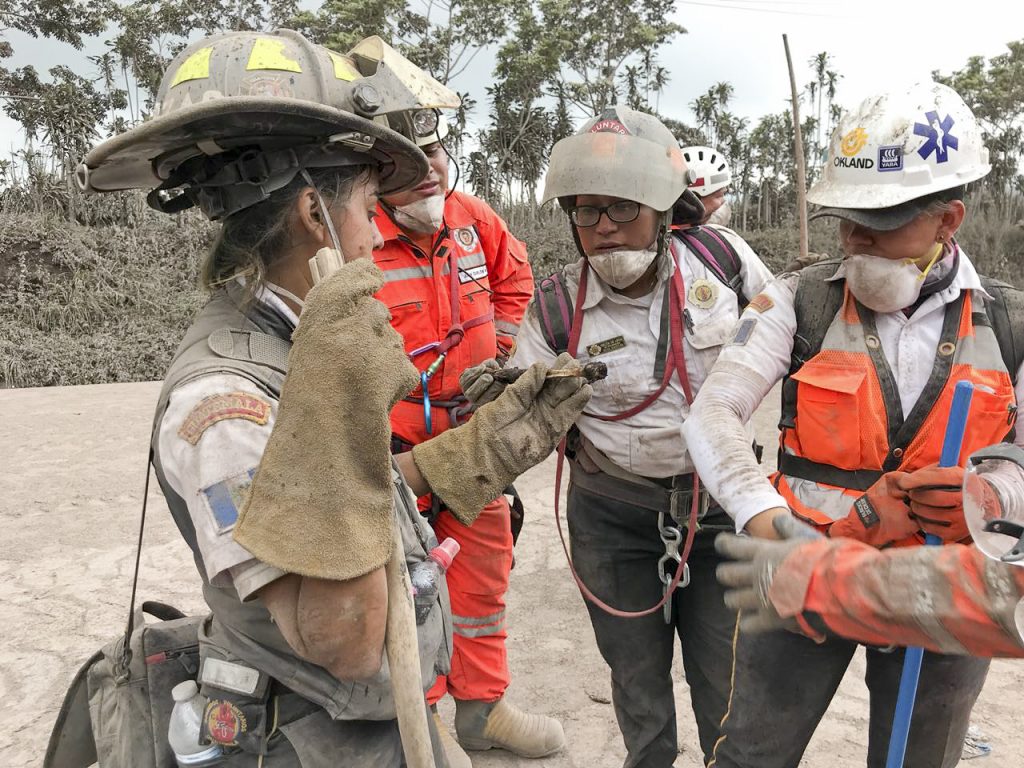
A Guatemalan search and rescue team operates in El Rodeo, Escuintla, 22 miles southwest of Guatemala City, after volcano Fuego’s June 3 eruption, which has forced families from their homes, damaged crops and affected 1.7 million people. Photo courtesy of CARE.
Global Washington Members Provide Emergency Relief to Victims of Guatemala’s “Fire Volcano”
UPDATED June 14, 2018, 3:00 p.m.
On June 3 Guatemala’s Volcán de Fuego, or “Fire Volcano” erupted. The volcano, which sits 27 miles southwest of the capital, Guatemala City, is part of the seismically-active Pacific Ring of Fire. Kilauea on the Big Island of Hawaii, which began erupting last month, also sits in this seismically-active path, but the two eruptions look very different.
Unlike the slow oozing of lava from Kilauea, Volcan de Fuego’s explosion created what are known as pyroclastic flows — extremely hot, fast-moving clouds of gas and volcanic matter that have killed at least 110 people.
Guatemala’s Fire Volcano has since increased its activity, with some of the strongest explosions throwing ash more than three miles into the air. Many areas that were buried under ash and debris are still inaccessible, which means the death toll will likely continue to rise.
According to the most recent situation report from the UN Office for the Coordination of Humanitarian Affairs (UNOCHA), over 1.7 million people in Guatemala have been affected and 12,823 people have been evacuated so far. 3,557 people are officially sheltered and 197 individuals have been reported missing.
Food security and economic recovery will be a major priority after immediate needs are met. UNOCHA reports that people in the affected areas mostly work in factories and farmland in the south. The crops they cultivated, mostly corn and bean, were primarily for their own consumption, and these have nearly all been wiped out. In an area of between 7,000-8,700 acres near the volcano, losses also include about 2,700 tons of coffee, equivalent to 1.27 percent of Guatemala’s coffee export for 2018-2019.
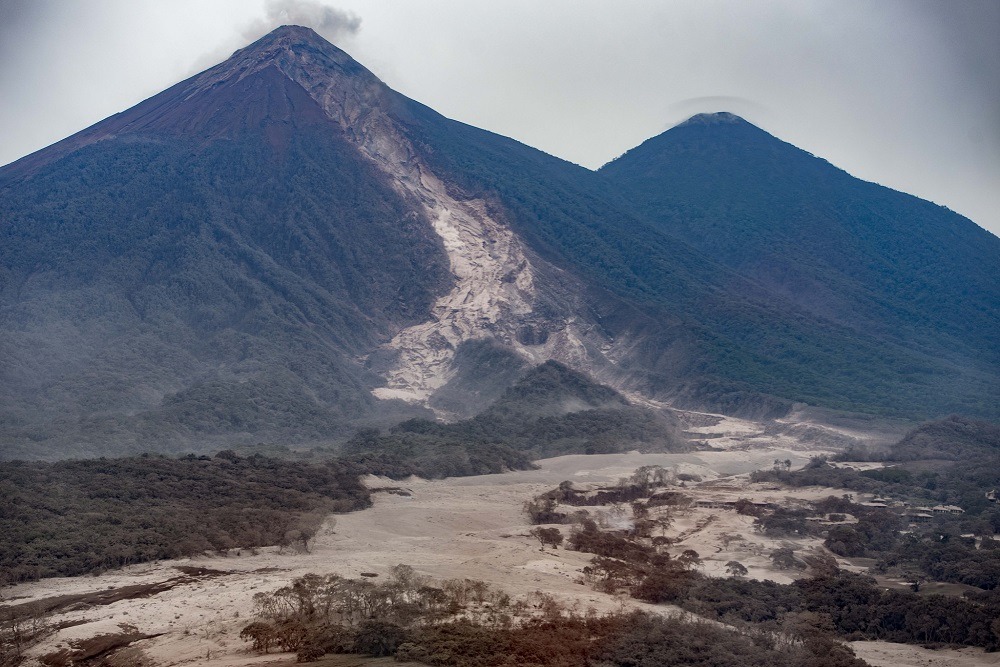 Eruption of Guatemala’s Volcan de Fuego, June 4, 2018. Photo courtesy of CONRED Guatemala via Flickr (CC BY-NC-ND 2.0).
Eruption of Guatemala’s Volcan de Fuego, June 4, 2018. Photo courtesy of CONRED Guatemala via Flickr (CC BY-NC-ND 2.0).
###
The following Global Washington members are responding to the communities affected by this volcanic eruption in Guatemala. These organizations are accepting donations directly, or you may donate to the Global Impact fund for Guatemala Volcano Relief.
Americares has been providing assistance to Guatemala since 1986, supporting a network of hospitals, clinics and homes for children and the elderly through its longstanding partnership with the Order of Malta. Americares is preparing an emergency shipment of medicine and relief supplies – sixteen tons of supplies – including antibiotics, wound care supplies, hygiene products and medicine for acute and chronic conditions, which will be distributed through the Order of Malta to shelters for evacuees.
https://www.americares.org/en/newsroom/news/2018/press/0611-guatemala-volcano/
CARE which has worked in Guatemala since 1959, has been actively working in the volcano’s impact zone, assessing needs and supporting affected families. The organization’s initial assessment identified immediate needs including food, water, and sanitation, as well as violence prevention, with a particular focus on women and girls, who face increased risks in crisis situations. In the days ahead, CARE plans to closely assess the particular effects of the disaster on women and indigenous minorities and adapt its response strategy accordingly.
http://www.care.org/newsroom/press/press-releases/psycho-social-support-for-families-children-part-cares-response
Mercy Corps has been working in Guatemala since 2001, focused on strengthening local violence prevention initiatives, providing nutrition education to mothers with young children, helping small-holder farmers diversify and improve the quality of their crops, and providing health and hygiene education. In response to the latest emergency, Mercy Corps has been coordinating with local authorities to distribute 1,500 gallons of purified water to evacuees. Further aid efforts are being assessed.
https://www.mercycorps.org/countries/guatemala
The Starbucks Foundation announced on Tuesday, June 12, that it has donated $100,000 to support CARE’s ongoing relief and recovery efforts to help victims of the Fuego Volcano eruption in Guatemala. In addition, it invited Starbucks customers in the U.S. to join the effort by donating to CARE via the Starbucks mobile app. In order to support long-term rebuilding efforts, Starbucks also announced it will be donating healthy coffee trees to farmers impacted by the volcano in the Antigua region.
https://news.starbucks.com/press-releases/starbucks-supports-guatemala-volcano-relief-efforts
World Vision is delivering humanitarian aid, including water, hygiene supplies, clothing, medicine, and psychosocial help to evacuees. In addition, it plans to establish Child-Friendly Spaces, where children of evacuees can play and feel safe. World Vision has also distributed 30,000 boxes of medical supplies to shelters in Escuintla, Alotenango, and Yepocapa, including nebulizers for treating respiratory injuries from ash and gases. More than 1,000 hygiene kits will also be delivered soon.
https://www.worldvision.org/disaster-relief-news-stories/guatemala-volcano-eruption-facts
University of Washington Students Receive Hands-On Lesson in the Art of ‘Doing Good’ in the World through Philanthropy
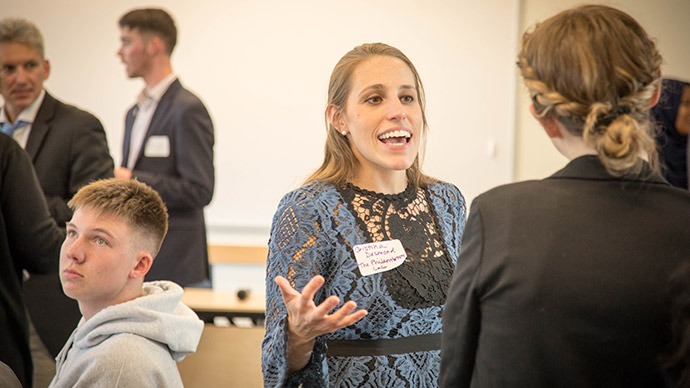
Photo by Colette Cosner, UW Arts & Sciences Communications Specialist
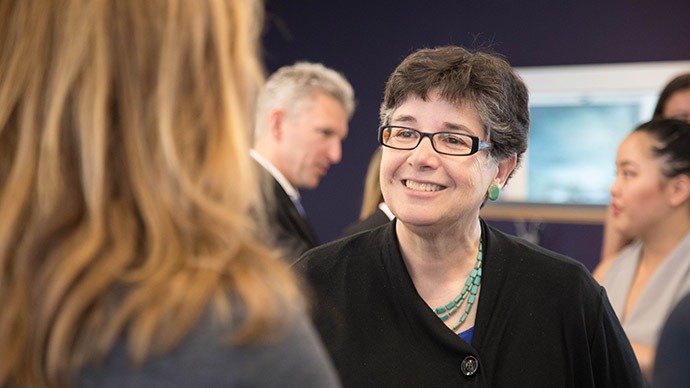
Photo by Colette Cosner, UW Arts & Sciences Communications Specialist
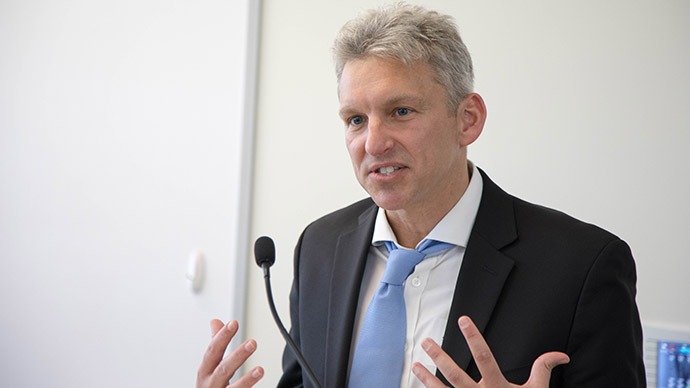
Photo by Colette Cosner, UW Arts & Sciences Communications Specialist
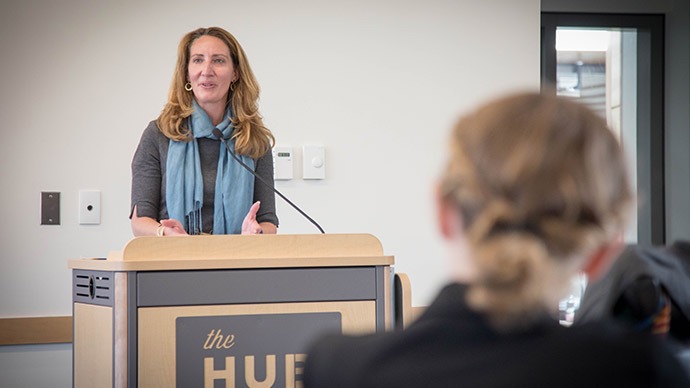
Photo by Colette Cosner, UW Arts & Sciences Communications Specialist
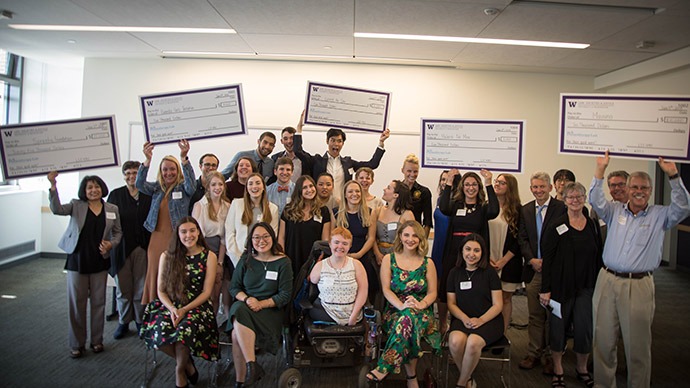
Photo by Colette Cosner, UW Arts & Sciences Communications Specialist
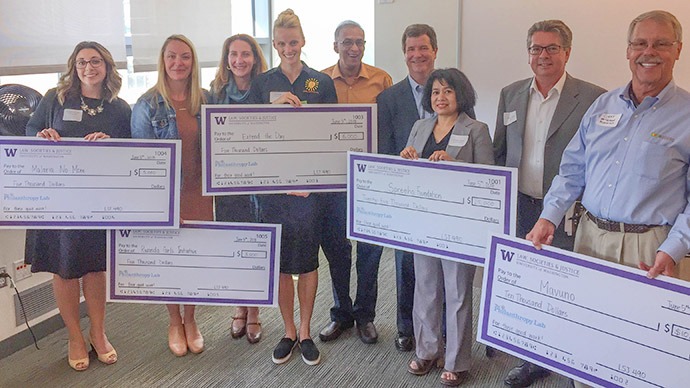
Photo by Andie Long, Global Washington
On Tuesday, June 5, five Global Washington member non-profits received grants from students at the University of Washington for their global programs, ranging from $5,000 to $25,000.
The grant-making was part of a new course on philanthropy for social impact, taught by Stephen Meyers, assistant professor in the UW Department of Law, Societies, and Justice.
Funding for the grants was provided by the Philanthropy Lab, a private foundation that is dedicated to increasing philanthropy education at U.S. universities.
Continue Reading












 Social and environmental issues have never been separate for Robin Barr. As the global director of TFT (
Social and environmental issues have never been separate for Robin Barr. As the global director of TFT (






